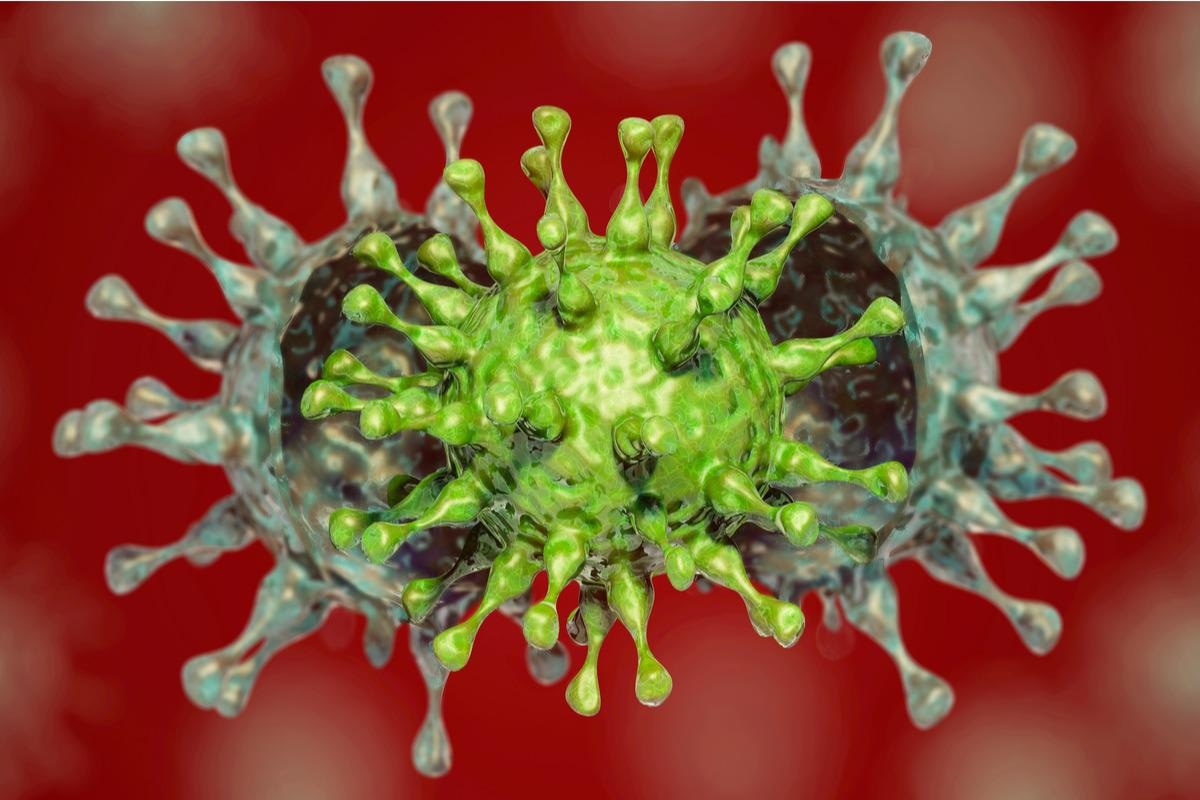Many countries are currently enacting mass vaccination programs against severe acute respiratory syndrome coronavirus 2 (SARS-CoV-2), relying on immunizing the population as quickly as possible to prevent the reintroduction of costly and restrictive measures used to prevent the spread of coronavirus disease 2019 (COVID-19) across the last two years.
 Study: Antibody cocktail effective against variants of SARS-CoV-2. Image Credit: DesignRage/Shutterstock
Study: Antibody cocktail effective against variants of SARS-CoV-2. Image Credit: DesignRage/Shutterstock
However, many of the new variants, such as the Delta and Beta lineages, have shown the ability to evade both vaccine-induced and natural immunity. It is increasingly recognized that more tools are needed to combat the disease. In a study published in the Journal of Biomedical Science, researchers from Academia Sinica in Taiwan have been investigating new antibodies that could have strong effects against SARS-CoV-2 infection.
Background
The researchers are looking at neutralizing chimeric antibodies (chAbs) against the spike protein of SARS-CoV-2, which is key to the organism's pathogenicity. More specifically, the six antibodies they have selected target the receptor-binding domain (RBD) of the S1 subunit. The spike protein is a transmembrane protein formed of the S1 and S2 subunits, which a host cleavage protein must activate.
The RBD of the S1 subunit binds to angiotensin-converting enzyme 2 (ACE2) to permit viral cell entry, while the S2 subunit is responsible for membrane fusion. Many variants contain mutations in the RBD, so the researchers need to understand if these antibodies can continue to bind to the new variants despite this.
The study
First, the researchers used enzyme-linked immunosorbent assays (ELISAs) to identify the binding ability of the RBD-chAbs to recombinant spike protein of different SARS-CoV-2 variants. Most of the RBD-chAbs retained their binding ability, except RBD-chAb-25, which showed significantly diminished binding against the Alpha, Beta, and Gamma variants containing the N501Y mutation.
To further examine the neutralization of the most potent RBD-chAbs, pseudovirus neutralization assays were used next. These revealed that RBD-chAb-25 also exhibited poor neutralization abilities against the Beta and Gamma variants. Still, all other RBD-chAbs remained consistently effective against not only the three variants mentioned earlier, but also the Epsilon, Iota, Kappa and Delta variants.
RBD-chAb-45 and -51 showed lower values than the other four RBD-chAbs for all variants. In vitro plaque reduction neutralization testing showed that RBD-chAb-45 and -51 could effectively block infection against the Alpha, Beta and Gamma variants. RBD-chAb-15 and -28 were both worse at neutralizing the Alpha and Gamma variants.
A previous study discovered that RBD-chAb-45 and -51 share overlapping epitopes using an ELISA-based competition-binding assay. As well as this, RBD-chAb-15 and -28 have epitopes that share a great deal of similarity, and the RBD-chAb-25 epitope partially overlaps with the epitopes of RBD-chAb-15 and -28. The only RBD-chAb to lose its neutralizing ability against SARS-CoV-2 variant pseudoviruses with the N501Y mutation is RBD-chAb-25. The researchers then evaluated the ability of cocktails of various RBD-chABs to neutralize variant pseudoviruses.
The most effective combinations were RBD-chAb-15 or -28 with RBD-chAb-45 or -51, which both showed significant neutralizing activities against SARS-CoV-2 pseudoviruses, including Alpha, Beta, Gamma, Epsilon, Iota, Kappa, and Delta. The RBD-chAb cocktails. More plaque reduction neutralization tests were performed to evaluate the RBD-chAbs cocktail neutralization potential against the SARS-CoV-2 Alpha, Gamma, and Delta variants. These revealed that RBD-chAb-15 or -28 combined with RBD-chAb-45 or -51 were the most effective against the wild-type virus.
The researchers then studied the antibodies in a hamster model. They examined RBD-chAb-15 and -45 along and in combination. Both single doses and a cocktail of the antibodies conferred significant protection, even when injected a single day before infection, with viral titers only just detectable three days post-infection. RBD-chAb-45 combined with -15 or -28 showed similar results, with SARS-CoV-2 titers at the limit of detection.
Conclusion
The authors highlight that their treatment shows significant prophylactic and therapeutic effects not only against wild-type SARS-CoV-2 but also against the Delta variant in hamsters. ELISAs and neutralization assays also suggest that these cocktails could be very effective against many of the other most common variants. These cocktails could make an excellent candidate to be taken forward for future testing. As more new variants continue to emerge, they could provide a powerful tool against the disease.